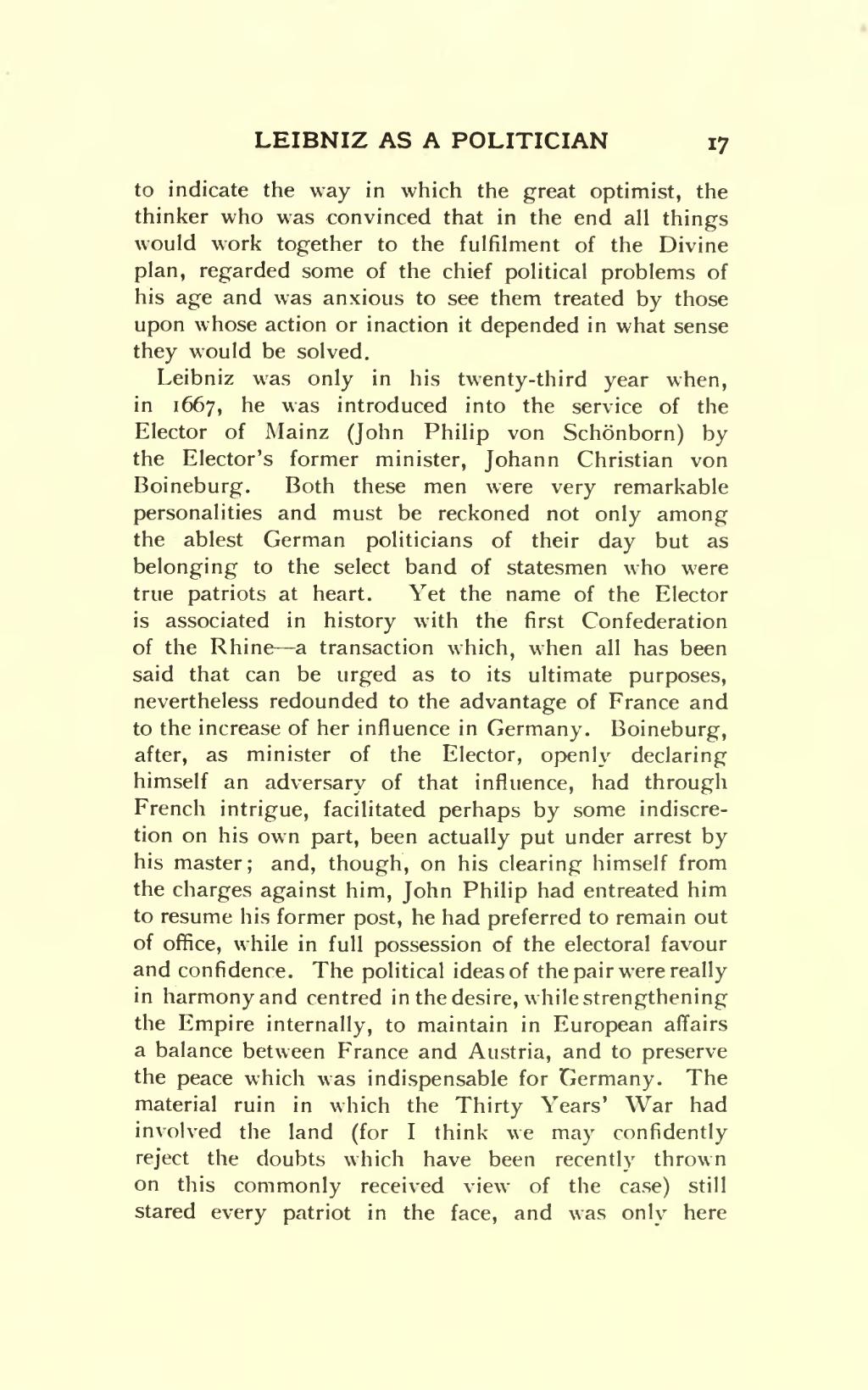to indicate the way in which the great optimist, the thinker who was convinced that in the end all things would work together to the fulfilment of the Divine plan, regarded some of the chief political problems of his age and was anxious to see them treated by those upon whose action or inaction it depended in what sense they would be solved.
Leibniz was only in his twenty-third year when, in 1667, he was introduced into the service of the Elector of Mainz (John Philip von Schönborn) by the Elector s former minister, Johann Christian von Boineburg. Both these men were very remarkable personalities and must be reckoned not only among the ablest German politicians of their day but as belonging to the select band of statesmen who were true patriots at heart. Yet the name of the Elector is associated in history with the first Confederation of the Rhine—a transaction which, when all has been said that can be urged as to its ultimate purposes, nevertheless redounded to the advantage of France and to the increase of her influence in Germany. Boineburg, after, as minister of the Elector, openly declaring himself an adversary of that influence, had through French intrigue, facilitated perhaps by some indiscretion on his own part, been actually put under arrest by his master; and, though, on his clearing himself from the charges against him, John Philip had entreated him to resume his former post, he had preferred to remain out of office, while in full possession of the electoral favour and confidence. The political ideas of the pair were really in harmony and centred in the desire, while strengthening the Empire internally, to maintain in European affairs a balance between France and Austria, and to preserve the peace which was indispensable for Germany. The material ruin in which the Thirty Years War had involved the land (for I think we may confidently reject the doubts which have been recently thrown on this commonly received view of the case) still stared every patriot in the face, and was only here
